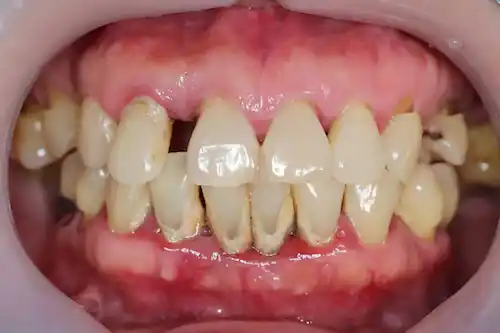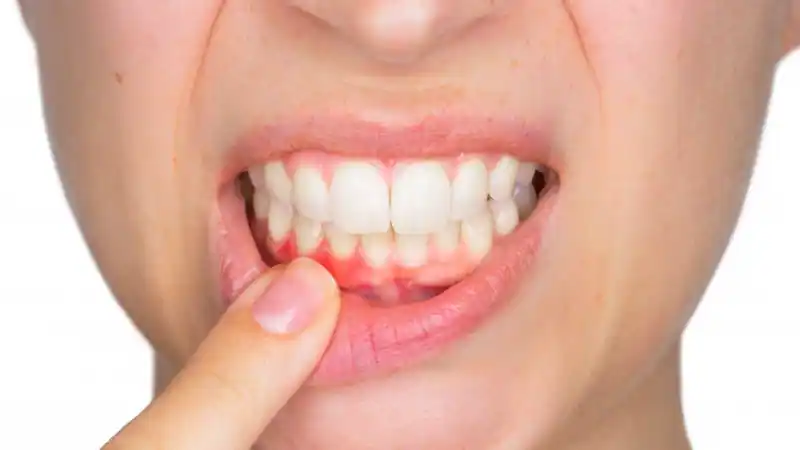Are you someone who follows a diligent oral hygiene routine, but has still had to seek treatment for gum disease? Even those who consistently brush and floss, eat a healthy diet, and attend all dental appointments may find themselves struggling with periodontal disease, and it may not be due to their own actions. In fact, genetics may be a contributing factor.
Research suggests that up to 30% of the population may have a genetic predisposition to gum disease, which, if left untreated, can result in tooth and bone loss. This means that if your parents or grandparents have experienced tooth loss or gum disease, it is important for you to maintain regular visits to the dentist in order to ensure the health of your mouth.
Dental & Implant Centers Of Colorado in Denver has a team of skilled periodontists who specialize in treating various types of gum disease. Given that gum disease can be influenced by numerous factors, it is crucial for individuals with a family history of the condition to seek the expertise of a periodontist to ensure their oral health is maintained.
To initiate periodontal treatment, a diagnosis must first be made. This entails a clinical examination, including X-rays, and a comprehensive review of your medical and dental history by your dentist or periodontist. If you have knowledge of a family history of gum disease, it is important to inform your periodontist.
In the event that you have a history of gum disease or a family history of it, your periodontist can closely monitor your oral health and develop a customized plan to prevent any further deterioration of your teeth and gums.
Periodontal disease is a result of the interplay between bacteria and the body’s immune system. While some individuals may be fortunate enough to fend off bacterial infections, even with suboptimal oral hygiene, others may struggle to do so, regardless of how meticulously they brush and floss.
Individuals who may have a genetic predisposition for gum disease should be particularly diligent in maintaining a proper oral care routine and seeing a gum disease specialist regularly. Providing a complete medical history, including any family history of the condition, will enable your periodontist to develop an accurate treatment plan tailored to your unique needs and susceptibility to the disease.
If you experience any of the following symptoms, it is important to schedule an appointment with a periodontist promptly:
- Bleeding gums while brushing and flossing
- Red, swollen, or tender gums
- Bad breath
- Receding gums or gums that are pulling away from the teeth
- Teeth that are loose or shifting
- Changes in your bite or in the fit of your partial dentures.

Taking care of your dental health is crucial not only for your smile but also for your overall well-being. There is a correlation between gum disease and other severe health issues, including heart disease, stroke, and diabetes. Having diabetes increases the risk of gum disease, and gum disease, in turn, can exacerbate the impact of diabetes.
If you have experienced any of the symptoms mentioned above or are aware of a family history of tooth loss or gum disease, it is recommended that you schedule an appointment with a periodontist as soon as possible.
Periodontal disease and dental implants
Periodontal disease can impact the success of dental implants, which are artificial tooth roots placed into the jawbone to support replacement teeth or bridges. If gum disease is left untreated, it can result in the destruction of the jawbone and ultimately cause the implants to loosen and fail.
Additionally, individuals with a history of gum disease may require additional treatment and monitoring to ensure the longevity of their implants. Therefore, maintaining good oral hygiene, receiving regular dental checkups, and promptly addressing any signs of periodontal disease are essential for preserving the health of both natural teeth and dental implants.
Dental implants are not a treatment for periodontal disease. While dental implants can replace teeth lost due to periodontal disease, they do not address the underlying infection and inflammation that cause the disease.
In fact, individuals with periodontal disease may not be good candidates for dental implants until the disease is brought under control. It is important to seek treatment for periodontal disease as soon as possible to prevent further damage to the teeth and gums and to determine the appropriate course of action for restoring your dental health.




